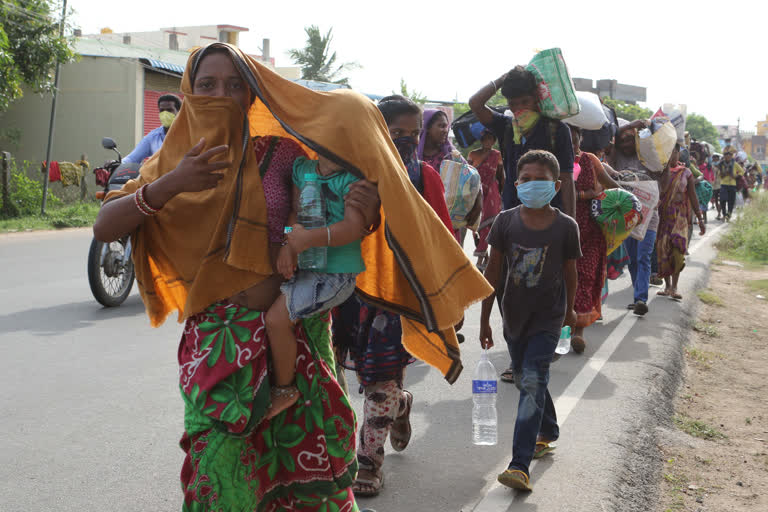Hyderabad: Prime Minister Narendra Modi had announced earlier that we need to protect both lives and livelihoods of the people during the pandemic’s second wave. Renowned economic Jean Dreze has warned that even though state-level restrictions and lockdowns were imposed instead of a national lockdown, a far more serious livelihood crisis threatens to engulf the country.
For crores of people, daily wage is the only source of livelihood. As most of the 45 crore labourers in the unorganized sector are languishing in extreme poverty, starvation deaths are likely to outnumber the death due to COVID-19 among such people. In what is seen as a move to avert starvation deaths, the Centre had announced that it would supply 5 kg food grains per head to 80 crore people of the country in the months of May and June. However, it may be noted that more than 10 crore poor people are already unable to get food grains from the PDS as their names are not mentioned in the census. There are others whose fingerprints got erased or distorted with the passage of time. Such beneficiaries of PDS are also unable to get their share of subsidized grains as the biometric machines do not recognize their fingerprints.
Also read: Oppositions trying to discredit BJP govt by spreading rumors on vaccine strategy, says BJP
While the Centre is promising additional quantity of food grains to the poor, it is refusing to provide any such relief to the migrant labourers. The Central government is arguing that since a nationwide lockdown has not been imposed, the migrant labourers are able to return to their villages and get food grains through their ration cards.
It seems that the governments are least bothered about the migrant labourers whose contribution to the GDP is around 10 per cent. More than 39 per cent of the migrant labourers could not get employment last year when they had returned to their villages after the nationwide lockdown was announced. Their incomes had slid by 86 per cent because of the lockdown. Migrant labourers are facing the same kind of problems they had experienced last year to get back to their villages. Governments do not seem to have taken any precautionary measures to spare them from those hardships.
The Central government is claiming that India has been achieving greater yields of agricultural produce year after year. But India stands 94th in the World Hunger Index comprising 107 countries. As Covid has swallowed several employment opportunities, the right to life of the migrant workers is in peril. In its recent orders, the Supreme Court has directed the Central government, along with the governments of Delhi, Haryana and Uttar Pradesh to provide other groceries also to the migrant labourers, along with two meals a day. It called for transport arrangements to be made to enable the migrants’ return home. It is imperative that labourers in other regions of the country too should be provided with similar facilities.
Families that have slipped into abject poverty due to loss of livelihood are also suffering the pangs of hunger. According to study reports from Azim Premji University, the daily income of 23 crore Indians fell below the daily minimum wage of Rs 375 because of the havoc played by the pandemic. Now there is neither work nor food for crores of people.
Also read: PM Modi speaks to doctors about their suggestions on COVID-19
A survey conducted by the Right to Food Campaign has revealed that 27 per cent Indians had to go hungry frequently without any food during the lockdown period last year. Such human tragedy should never recur. Government warehouses in the country have food grains whose quantity is 3 times greater than the quantity required in emergency. Time has come to provide free food grains to all those that need them, irrespective of whether they belong to poor or middle classes. Governments should make moves on a war footing to avert starvation deaths, in addition to the covid mortalities.



